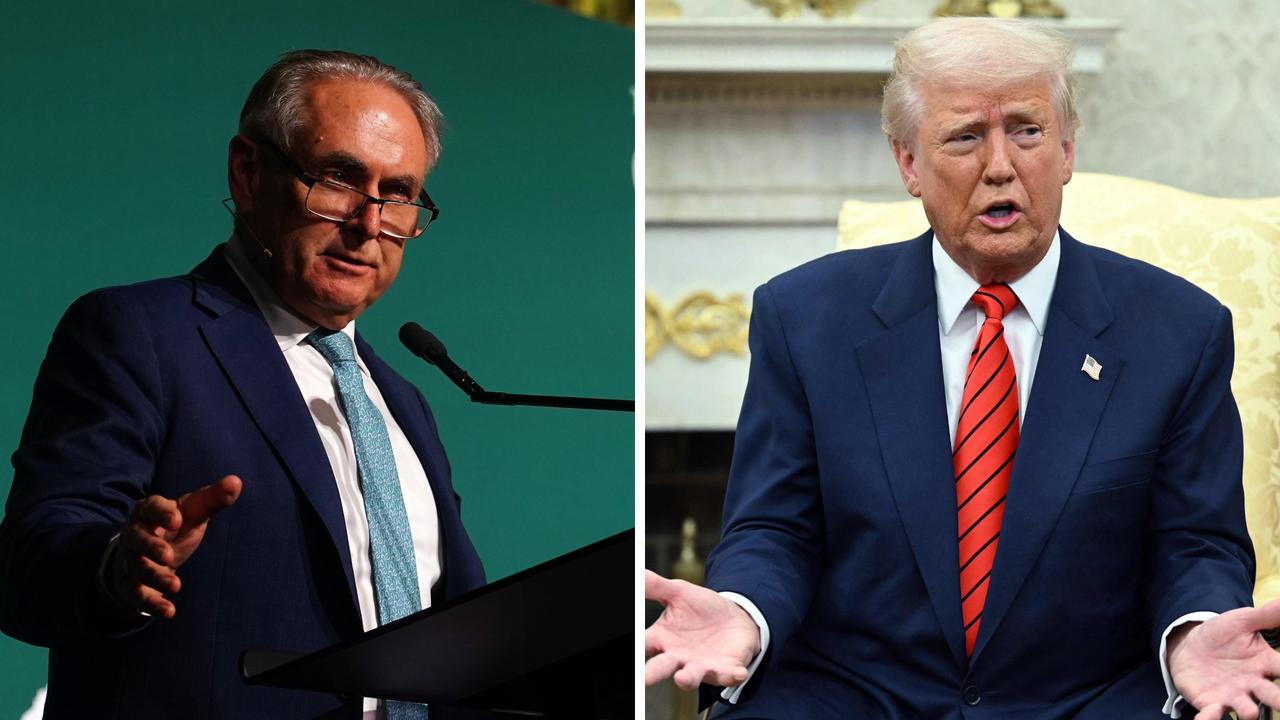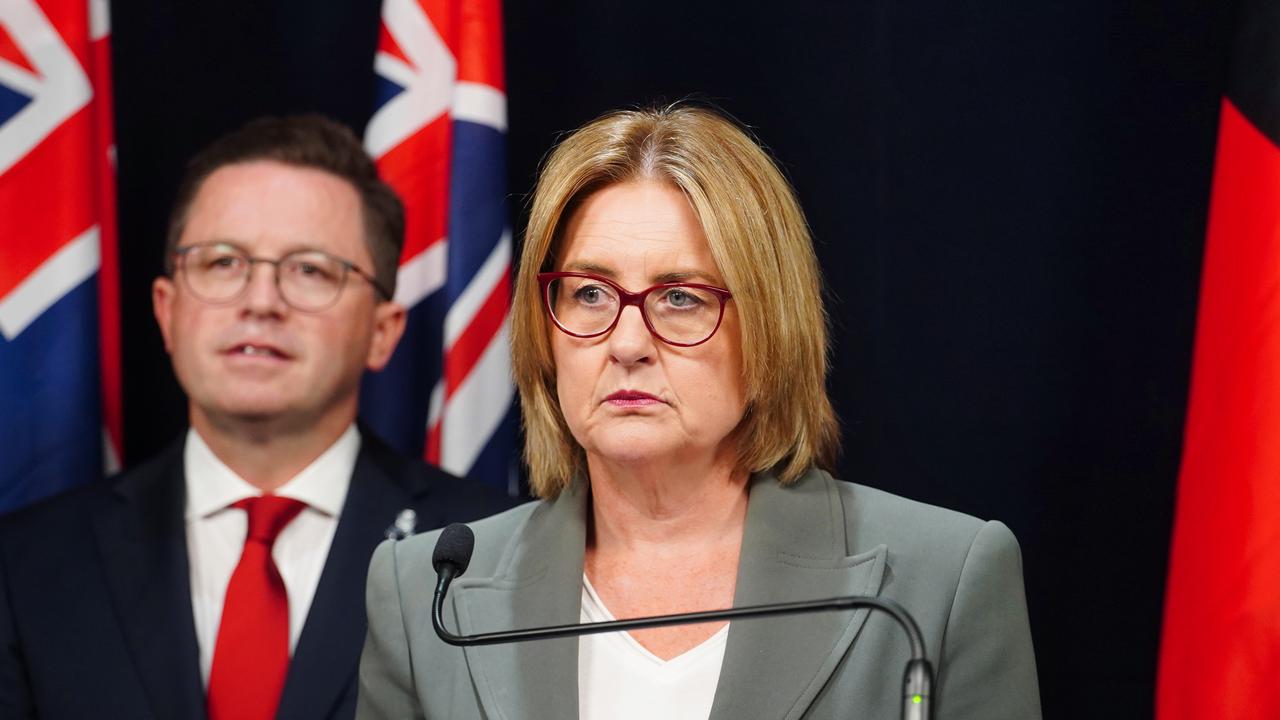Labor cancer plan is decent policy meeting tawdry politics
Money was central to my cancer treatment but I fear Labor’s $2.3bn Medicare plan will get ugly.

COMMENTARY
The signature piece of Bill Shorten’s budget-in-reply last night, a $2.3 billion extension to Medicare for cancer patients, is a case of decent policy meeting tawdry politics.
My first thought was the announcement would resonate with voters. At face value, it will give some comfort to people who have been recently diagnosed and remind those who have already been through the oncological ringer of the financial challenges they endured.
When I was first diagnosed, the last thing I thought of was money, but it quickly became front and centre. The costs of scans loomed largest for me.
All cancers are different but there are similarities in treatment. One might undergo chemotherapy or radiotherapy or in a growing number of cases, immunotherapy.
One thing all cancer patients know is that at some point, they will be lying down in an ill-fitting disposable gown, feeling vaguely claustrophobic while being shoved through a gigantic, whirring doughnut.
One friend who has had a long battle with brain cancer told me last night he is up for a five-figure bill in scans this year. He shed a tear when he heard Shorten’s announcement.
Another mate with rectal cancer has done the oncological quadrella — radio, chemo, surgery and is currently undergoing a last round of chemo before he, too, will be scanned to determine the next course of action. He has had six scans since his diagnosis in June last year. He estimated his out of pocket expenses on scans alone at $1200.
With a little luck, he may be given the all clear and will be scanned for the next five years at either three- or six- month intervals.
Last year I had approximately 20 scans. To be honest I lost count. Most of them were CT (Computed Tomography), some MRI (Magnetic Resonance Imaging) and the occasional ultrasound. Some of the scans took place at a public hospital immediately after surgery and there was no charge. A small number were bulk billed. I had to pay for ten scans directly out of pocket. Whether one has private medical insurance or is a common or garden Medicare claimant does not matter a whole lot. There is a large, empty space between the figure the diagnostic imaging centres charge and the scheduled fee. A quick flick through my records this morning shows I dropped about two grand cold in scans last year.
I’m on the mend or so they tell me, so Labor’s policy won’t affect me greatly. I expect to undergo just two scans this year. An ultrasound in a month and another of some description before I see the urologist again later in the year. If both are clear that should be it.
Some patients, especially those with rare cancers endure extraordinary financial hardship with the cost of drug therapy.
In 2017, I went on a clinical trial of a drug known by its trademark as Keytruda or its pharmaceutical name Pembrolizumab which the oncologists or oncs, (medicos love to abbreviate) refer to as Pembro. I didn’t have to pay a cent and I took a certain perverse delight in knowing each infusion (I had four in total) cost an astonishing $60,000.
I used to joke with the nurse at the infusion centre that we should whisk the Pembro away, cut it up with baby formula, sell it on the street and split the profits.
The Coalition has got a good story to tell on medicines, cancer and non-cancer. Under the Coalition, the Pharmaceutical Benefits Scheme has waved through hundreds of new drug therapies that would otherwise be beyond the financial reach of patients. Pembro didn’t help me and I’m told its success rate is quite low but when it works, especially with lung and bowel cancers, the results can be spectacular. Almost instant remission. The drug went on the PBS in 2018.
Speaking with people in various stages of cancer treatment over the last day or so, the prevailing view is that the Shorten announcement was good policy that might attract some ugly electoral marketing. Will Labor’s campaign entail Bill Shorten, Chris Bowen and shadow health spokesperson, Catherine King, stumbling around infusion centres, knocking out cannulas with a gaggle of media in tow?
Everyone with cancer has their own story and I am not comfortable with those stories being hijacked for political gain.
This morning Scott Morrison announced a Royal Commission to examine the abuse, neglect and exploitation within the disability sector. Like Labor’s policy announcement, it was a matter of a good result cloaked in virtue signalling. Morrison became emotional when referring to his brother-in-law, Garry Warren, who suffers from multiple sclerosis.
Shorten responded by saying the announcement was overdue and while that is correct, he went on to make a cynical insinuation that the government had only established the royal commission with an election looming.
“Labor supported this two years ago. I’m glad the government came on board on election eve,” Shorten said.
Using sick or disabled people as political props is about as low as it gets. Perhaps the only thing worse is the holier than thou squabbling.
With the election campaign proper little more than days away, we can expect an almighty clamour for the moral high ground with Labor and the Coalition running around, chests out, declaring they are more virtuous than the other.
I think voters will get sick of that quickly.




To join the conversation, please log in. Don't have an account? Register
Join the conversation, you are commenting as Logout